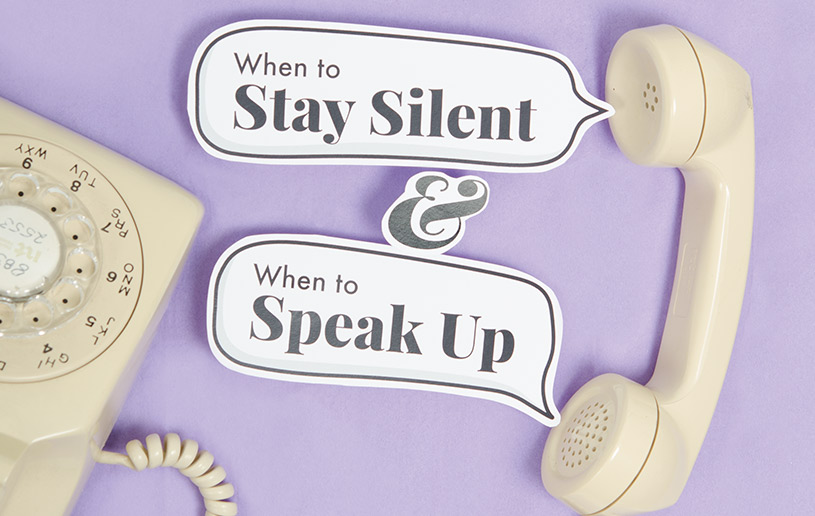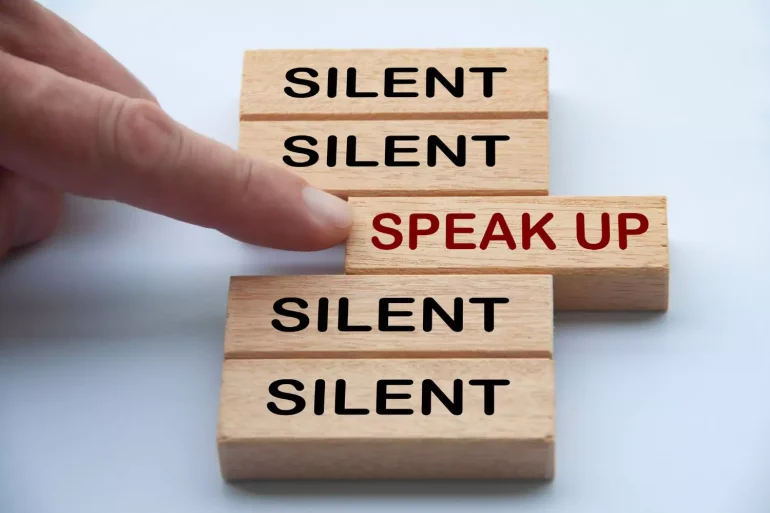In our hyperconnected world, where everyone has an opinion and platforms to share them, the art of strategic communication has never been more crucial. The ability to discern when to speak up and when to remain silent can make the difference between building meaningful relationships and burning bridges, between advancing your career and stalling your progress, between creating positive change and escalating unnecessary conflict.
This fundamental communication skill goes far beyond simply having something to say—it’s about understanding the profound impact of both words and silence in different contexts. Speaking up at the right moment can drive meaningful conversations, protect your rights, advocate for others, and demonstrate confidence and leadership. Conversely, knowing when to stay silent can prevent misunderstandings, show emotional intelligence, allow space for reflection, and sometimes deliver the most powerful message of all.
The challenge lies in developing the wisdom to recognize these moments. Psychology research reveals that both excessive silence and inappropriate speaking can be detrimental to personal and professional relationships. Those who are naturally inhibited and nonassertive often benefit from learning to express themselves more, while those who tend to be overly talkative may need to practice restraint.
The stakes are real: employees spend an average of two weeks ruminating about moments when they didn’t speak up, costing organizations approximately $7,500 per missed conversation. Yet speaking at the wrong time can be equally costly, potentially damaging relationships and escalating conflicts unnecessarily.
When Speaking Up Is Essential

Protecting Yourself and Others from Injustice
One of the most critical times to use your voice is when witnessing or experiencing unfair treatment. Silence in the face of bullying, discrimination, or harassment often allows these behaviors to persist and escalate. Whether you’re standing up for yourself or advocating for others, speaking out against injustice is both a personal responsibility and a moral imperative.
In workplace settings, addressing unfair treatment with supervisors or HR representatives can prevent conflicts from escalating and protect both yourself and your colleagues. When you witness discrimination or bullying, advocating for the affected person can make a meaningful difference and empower those who might not have the confidence to speak for themselves.
The key principle here involves understanding your proximity to power. If you hold privilege—whether through race, gender, economic status, or position—it becomes vital to use your voice to speak for those who may not have the same access or whose voices aren’t listened to as readily.
Career Advancement and Professional Growth

Your professional success often hinges on your ability to speak up at crucial moments. This includes asking for raises, proposing innovative ideas in meetings, seeking clarification on unclear instructions, and expressing your professional opinions when they can add value.
Staying silent when your success is at stake essentially means letting others write your professional story. Whether it’s throwing out a brilliant idea in a meeting or asking for that well-deserved promotion, your future success depends on making your voice heard at the right moments.
Additionally, speaking up prevents you from missing valuable learning opportunities. Asking questions—even those you might consider “foolish”—is how you grow professionally and personally. The only truly foolish question is the one left unasked.
Preventing Dangerous Precedents
Boundary violations and unethical behaviors rarely happen in isolation—they tend to escalate over time. Speaking up when something unethical or dangerous occurs prevents you and your team from sliding down the slippery slope of justifying increasingly unacceptable actions.
When something goes against workplace rules or established policies, addressing it protects not just yourself but the entire organizational culture. This type of intervention can save companies and colleagues from potential legal action while maintaining a safe, inclusive work environment.
When Silence Is the Wiser Choice

During Heated Emotional Moments
Psychology consistently shows that when emotions run high, rational thought takes a backseat. Words spoken in anger are rarely productive and often escalate situations further. During heated arguments or emotionally charged discussions, staying silent isn’t admitting defeat—it’s a strategic move that allows cooler heads to prevail.
The most powerful response is sometimes not responding at all. Instead of engaging when someone becomes verbally aggressive or defensive, phrases like “Let’s stop right now and continue this discussion at another time when it’s less upsetting” can help de-escalate the situation.
When You Lack Sufficient Knowledge
Speaking up when you’re unsure of the facts can lead to spreading misinformation and undermining your credibility. When you don’t have enough evidence or knowledge about a topic, it’s wiser to listen more and talk less.
This approach not only saves you from potentially embarrassing situations but also provides opportunities to learn from others who are more knowledgeable on the subject. Admitting when you don’t have anything meaningful to add demonstrates intellectual honesty and emotional maturity.
When Your Judgment Is Compromised
The first moment you should refrain from speaking is when you’re having difficulty thinking clearly. Whether due to stress, fatigue, emotional turmoil, or other factors that cloud your judgment, speaking during these times can lead to regrettable statements and poor decisions.
Taking time to reflect and regain clarity before engaging in important conversations ensures that your words are thoughtful and constructive rather than reactive and potentially harmful.
Making Space for Others
Sometimes the most powerful thing you can do is step back and allow others to take the spotlight. This is particularly important when someone with less privilege or more direct experience with a subject should be the one contributing to the conversation.
Understanding when to offer up your seat of power to someone who should have had their own seat demonstrates true leadership and allyship. This type of strategic silence creates space for diverse voices and perspectives that might otherwise go unheard.
Developing Your Communication Wisdom
The art of knowing when to speak and when to remain silent requires considerable practice, but the rewards are substantial. Consider the implications of your words before speaking, and remember that withholding certain thoughts and feelings can sometimes be less risky than impulsive outbursts.
Mastering this balance contributes to stronger relationships, better conflict resolution, and more effective leadership. As one person who shared his successful marriage philosophy noted: “We have never, never called each other a name,” adhering to the belief that you should sugarcoat your words because you never know when you’ll have to eat them.
The key lies in developing emotional intelligence and situational awareness. Pay attention to the context, consider your proximity to power, assess the potential impact of your words, and trust that inner voice that tells you when something needs to be said—or when silence would be more powerful.
Remember, both speaking up and staying silent are forms of communication. The goal is to use each strategically to create positive outcomes, build stronger relationships, and contribute to a more just and understanding world.

